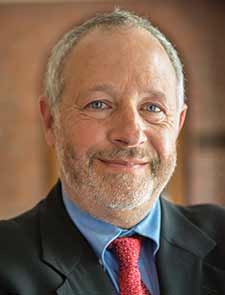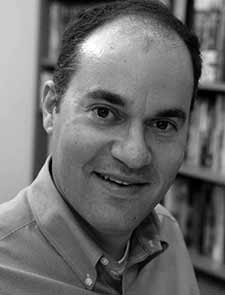
Dornsife scholars discuss how research in the social sciences and humanities helps address global environmental challenges
With climate change in the news every day, many students entering college feel passionate about making their mark on creating a more sustainable future. But is it possible to be an environmentalist without majoring in geology or environmental studies?
In honor of Earth Day 2016, we asked USC Dornsife faculty members in the social sciences and humanities — whose research focuses all intersect with environmentalism — to discuss why experts in their fields are vital to combating our planet’s most formidable challenges.

Robert English, associate professor of international relations, Slavic languages and literatures, and environmental studies:
I have appointments in international relations and Slavic studies, but it is environmental studies that unites the three. For me, at least, it’s global warming and the changing Arctic that draw Russia, energy and geopolitics into one vital sphere of politics and policymaking.

Peter Mancall, vice dean for the humanities and social sciences and professor of history:
It is impossible to understand the environment without a precise sense of history. How else would we know about changes in climate, for example, or why certain plants and animals can be found far from their native ranges without historical documents explaining migration patterns and primary-source accounts of droughts and floods?

Matthew Kahn, visiting professor of economics and spatial sciences:
Environmental studies quantifies objective new risks we face such as increased heat waves and coastal sea-level rise associated with climate change. Environmental economists are eternal optimists. Once we understand the scientific basis of the challenges we face, we economists design incentives and shape government policies to harness capitalism to protect us from these new risks.

Darren Ruddell, assistant professor (teaching) of spatial sciences:
The spatial sciences are concerned with understanding place — meaning a parcel of land, a neighborhood, a city or even the globe — and how interactions between human and environmental systems in a particular place converge to shape our world. While the convergence of human and environmental systems can result in positive outcomes, such as harvesting clean energy or designing more livable and sustainable communities, research also shows that some human activities stress environmental systems — as observed in deforestation, ground water contamination and the urban heat island effect.
Spatial thinking — i.e., the ability to understand connections between space and place — is critical to investigating, understanding and developing solutions to the 21st century’s most complex environmental challenges.

Yael Wolinsky-Nahmias, associate professor of the practice of environmental studies and political science:
Environmental issues are inherently interdisciplinary, involving scientific, political, economic, and social challenges and opportunities. Studying environmental issues from political science and international relations perspectives offers better understanding of the dynamics of international policy making, the role of leadership and changes in public attitudes.
For example, political science and international relations models help explain why so many countries were willing to cooperate on climate change and the trade-offs leaders are willing to make due to domestic politics and economic constraints — as we saw in the recent climate change conference in Paris.
According to the World Economic Forum, “the environment and natural resource security” are among the top-10 most critical challenges facing humanity. While environmental scientists and geologists indeed play a key role in addressing issues such as climate change, USC Dornsife scholars emphasize that understanding our natural environment crosses virtually every field of study.
“Environmental historians see the enormous value of scientific and ecological research,” Mancall said. “But by studying history we can place these modern-day observations in context. After all, everything we see in the world around us is the product of myriad historical forces.”